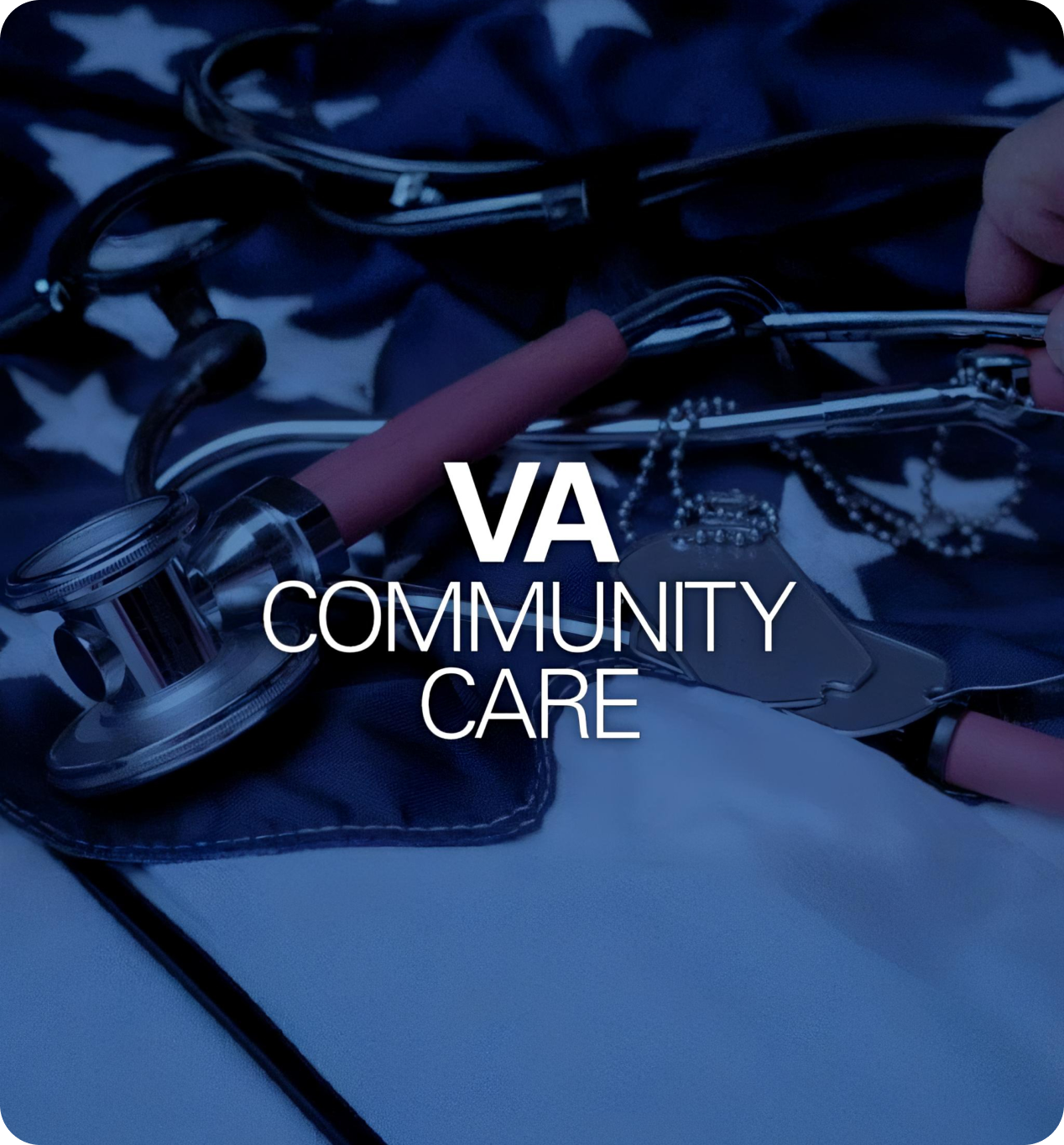Join
The VA Community Care Network
A Guide for Anxiety / Phobia Specialists
In California, independent Physician Assistants (PAs) can bill the Department of Veterans Affairs (VA) for services provided to veterans, but it’s essential to understand the regulations surrounding this process.
Welcome to Veterans Desk, your trusted resource for connecting dedicated mental health professionals with opportunities to serve our nation’s veterans. This guide is designed for clinicians who specialize in treating anxiety disorders and phobias. Whether you’re a psychologist, clinical social worker, licensed counselor, or therapist trained in trauma-focused care, this page provides everything you need to join the VA Community Care Network (CCN).

Step-by-Step Enrollment in the VA CCN
Verify Your Credentials
- Maintain an active license as an LCSW, LPC, LMFT, PhD, PsyD, or equivalent mental health provider.
- Possess clinical experience in treating anxiety disorders, phobias, or trauma-related conditions.
Prepare Required Documents
- Valid state license
- Malpractice insurance coverage
- Signed W-9 for reimbursement
- Updated CV or resume
- Documentation of continuing education (CEUs) or training in modalities such as CBT, DBT, EMDR, or Exposure Therapy
Submit Your Application
Apply through the appropriate network based on your region:
Complete Required VA Training
VA provider onboarding includes required training in:
- HIPAA & privacy compliance
- Veteran-centered care
Trauma-informed therapy practices
Access available trainings at the VA Provider Education Portal.
Credentialing & Facility Review
- Your credentials, clinical background, and training history will be reviewed.
- If operating in a private practice setting, you may undergo an accessibility and compliance assessment.
Receive and Sign Contract
- Upon approval, you will receive a contract outlining reimbursement terms and authorization procedures.
- Once signed, you may begin receiving referrals for veterans requiring anxiety or phobia treatment.

Why Anxiety / Phobia Specialists Matter to Veterans
Veterans experience high rates of generalized anxiety disorder, panic disorder, social anxiety, and specific phobias, often linked to combat trauma, military sexual trauma, or prolonged service-related stress. Left untreated, these conditions can hinder reintegration into civilian life, impact relationships, and reduce quality of life.
As an anxiety/phobia specialist, your role in the VA CCN includes:
- Delivering evidence-based therapies such as Cognitive Behavioral Therapy (CBT), Exposure Therapy, and Eye Movement Desensitization and Reprocessing (EMDR).
- Helping veterans regain independence, reduce avoidance behaviors, and manage intrusive fears.
- Supporting integrated mental health care in collaboration with VA primary care and behavioral health teams.
- Offering care through in-person or telehealth platforms for accessibility and flexibility.


Key Benefits of Joining the VA CCN
- Make a Lasting Impact: Address trauma-linked anxiety and phobias to improve a veteran’s mental health, functionality, and reintegration success.
- Telehealth Flexibility: Serve veterans in rural or underserved regions using VA-supported virtual platforms.
- Integrated Care Teams: Collaborate with psychiatrists, psychologists, and care coordinators to provide holistic care.
- Streamlined Billing: VA systems support prompt, authorized reimbursement for approved services.
- Professional Development: Access ongoing training, research, and VA-sponsored workshops in trauma-focused care.

Bridging the Gap for Veterans

Clinical Support & Career Growth
- Attend VA-sponsored trainings and CME opportunities in trauma therapy, stress reduction, and phobia management.
- Build experience working within veteran-specific care models and collaborative treatment teams.
- Access professional growth resources through the VA Office of Academic Affiliations.
- Eligible providers may qualify for federal student loan repayment programs.

Transitioning from Military Service
- Former military mental health providers are encouraged to enroll.
- Highlight experience in combat stress, deployment debriefing, or military-specific anxiety care.
- Veterans may receive preference when registering as a Veteran-Owned Small Business (VOSB) or Service-Disabled Veteran-Owned Small Business (SDVOSB)
Frequently Asked Questions (FAQs)
Can I provide virtual therapy for anxiety and phobias?
Yes. Tele-mental health is supported by the VA, especially for veterans in remote or underserved communities.
Are phobia-specific therapies like Exposure Therapy covered?
Yes. Modalities such as CBT, Exposure Therapy, and EMDR are recognized and reimbursed when documented in a veteran’s approved treatment plan.
Can I offer group therapy for anxiety disorders?
Yes. Group therapy focused on managing anxiety, panic, or social phobia is allowed and reimbursed under VA policy, provided it is pre-authorized and appropriately documented.

